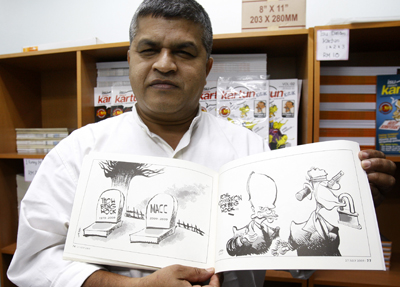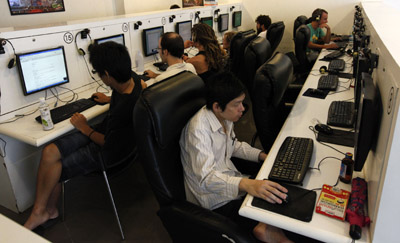Thai webmaster conviction chills press freedom online
San Francisco, May 30, 2012–The Committee to Protect Journalists condemns today’s conviction of Chiranuch Premchaiporn, webmaster of the Prachatai discussion board, under Thailand’s Computer Crimes Act. The court’s decision, which affirms that website operators can be criminally liable for the content of user comments, chills online press freedom in the country, and leaves Thai news…
Holding intermediaries liable for users’ content
Earlier this month, I spoke as an expert witness in the ongoing trial of Chiranuch Premchaiporn, the editor of Thailand’s Prachatai.com website, who is being criminally prosecuted under that country’s Computer Crime Act and Lesé Majesté laws. The crime involves online posts allegedly disrespectful to Thailand’s monarchy, but Chiranuch herself is not accused of originating…

Press freedom heroes in Southeast Asia
Three Southeast Asian journalists–Cambodia’s Hang Chakra, Malaysia’s Zulkiflee Anwar Ul Haque, or Zunar, and Thailand’s Chiranuch Premchaiporn–were among the 48 awardees of the Hellman/Hammett grant, given to writers targeted with political persecution, who were recognized today by Human Rights Watch for their commitment to press freedom.

Internet freedom on trial in Thailand
Hearings commenced today in the trial of Chiranuch Premchaiporn, executive director of the Thailand-based independent news website Prachatai. She stands accused of 10 different violations of the country’s draconian 2007 Computer Crime Act (CCA), each of which carries a maximum penalty of five years in prison.
Obama should address media rights in Southeast Asia
Dear President Obama: We are pleased that you will begin your second term as U.S. president with a trip to Southeast Asia. As you visit Burma, Cambodia, and Thailand from November 17 through 20 while attending the 21st Association of Southeast Asian Nations Summit and related meetings in Phnom Penh, we hope that your commitment to human rights and the fundamental right to free expression remains an important aspect of your agenda.

Attacks on the Press in 2011: Regulating the Internet
Legislation for Internet security can quickly turn into a weapon against the free press. Cybercrime laws are intended to extend existing penal codes to the online world, but they can easily be broadened to criminalize standard journalistic practices. By Danny O’Brien
